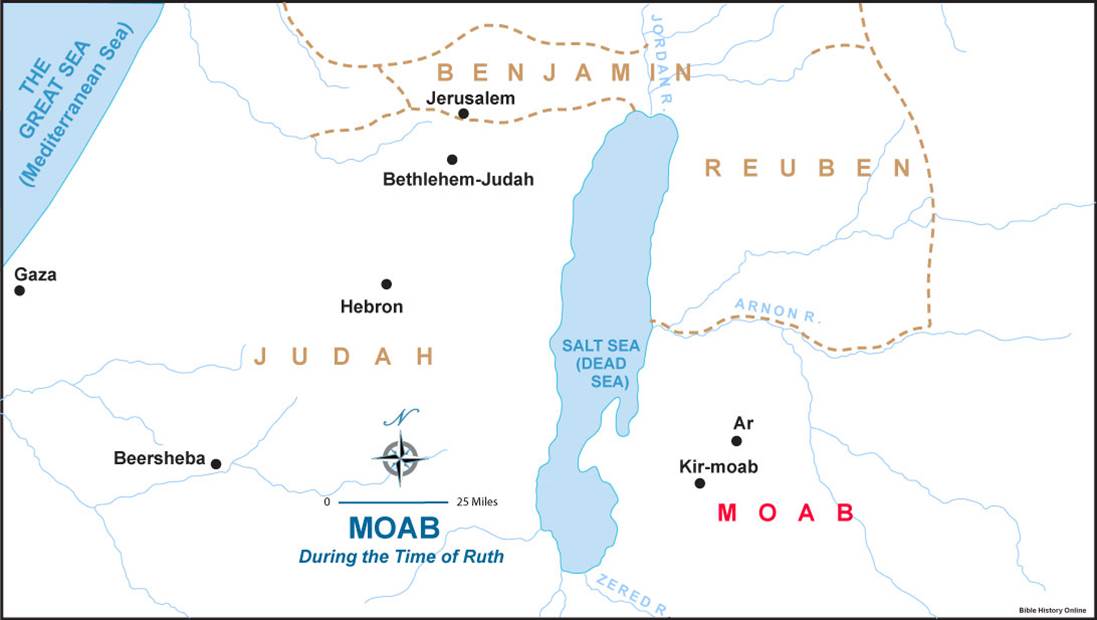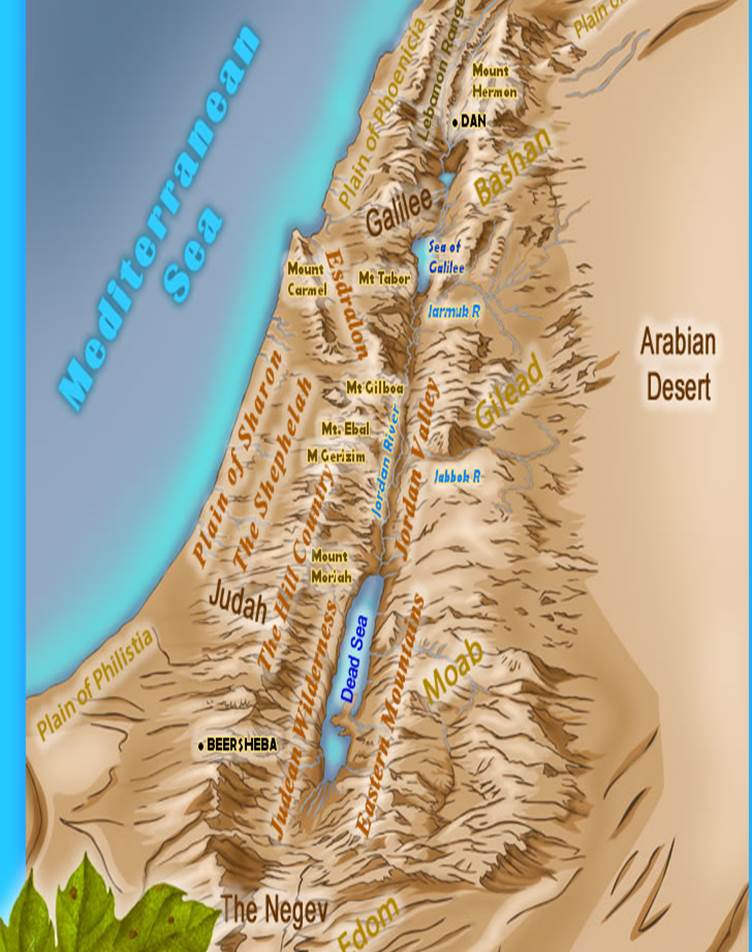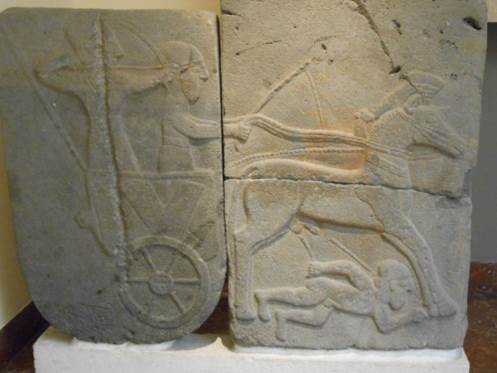Judges: Chap 1, part 2: Judah takes the south and helps her brothers, but is unable to take the plains. Failure is lack of faith.
length: 61:26 - taught on Dec, 7 2016
Class Outline:
Title: Judges: Chap 1, part 2: Judah takes the south and helps her brothers, but is unable to take the plains. Failure is lack of faith.
Announcements / opening prayer:
Judah takes the south and west but is unable to exterminate the Canaanites in the plain.
JDG 1:1 Now it came about after the death of Joshua that the sons of Israel inquired of the Lord, saying, "Who shall go up first for us against the Canaanites, to fight against them?"
JDG 1:2 And the Lord said, "Judah shall go up; behold, I have given the land into his hand."
Since Judah conquered Jerusalem we discover that they are taking the lead for their neighbor tribes in fighting to clear out their allotment, since Jerusalem was in the territory of Benjamin. They are not taking command of the other tribes but being more like a leading role as an example.
Judah takes the lead to be the champion of his brethren likely because of their faith and vigor and also because it was prophesied by Jacob long ago.
GEN 49:8 "Judah, your brothers shall praise you;
Your hand shall be on the neck of your enemies;
Your father's sons shall bow down to you.
GEN 49:9 "Judah is a lion's whelp;
From the prey, my son, you have gone up.
He couches, he lies down as a lion,
And as a lion, who dares rouse him up?
GEN 49:10 "The scepter shall not depart from Judah,
Nor the ruler's staff from between his feet,
Until Shiloh comes,
And to him shall be the obedience of the peoples.
GEN 49:11 "He ties his foal to the vine,
And his donkey's colt to the choice vine;
He washes his garments in wine,
And his robes in the blood of grapes.
GEN 49:12 "His eyes are dull from wine,
And his teeth white from milk.
JDG 1:3 Then Judah said to Simeon his brother, "Come up with me into the territory allotted me, that we may fight against the Canaanites; and I in turn will go with you into the territory allotted you." So Simeon went with him.
Simeon's inheritance is within the inheritance of Judah so they were closely connected.
JDG 1:4 And Judah went up, and the Lord gave the Canaanites and the Perizzites into their hands; and they defeated ten thousand men at Bezek.
JDG 1:5 And they found Adoni-bezek in Bezek and fought against him and they defeated the Canaanites and the Perizzites.
JDG 1:6 But Adoni-bezek fled; and they pursued him and caught him and cut off his thumbs and big toes.
"Adonai-bezek" = lord of Bezek; an official title and not a proper name. May have marched south to join other Canaanites to attack Judah, but Judah struck first.
As the precise circumstances connected with the occasion and course of this war have not been recorded, there is nothing to hinder the supposition that Adoni-bezek may have marched from the north against the possession of Benjamin and Judah, possibly with the intention of joining the Canaanites in Jerusalem, and the Anakim in Hebron and upon the mountains in the south, and then making a combined attack upon the Israelites. This might induce or even compel Judah and Simeon to attack this enemy first of all, and even to pursue him till they overtook him at his capital Bezek, and smote him with all his army.
Cutting off thumbs and big toes = can never carry arms or flee again.
This cruel punishment was retribution for what the king did to many others.
JDG 1:7 And Adoni-bezek said, "Seventy kings with their thumbs and their big toes cut off used to gather up scraps under my table; as I have done, so God has repaid me." So they brought him to Jerusalem and he died there.
It is interesting that Bezek is not mentioned in the conquest by Joshua and it may be that it was not situated in a place that Joshua conquered. Bezek was probably a prominent place from which other areas were conquered before the arrival of Joshua, but had now fallen into decline. Seventy is likely hyperbole and just stated as meaning that he had done this many times and they are presented figuratively as dogs looking for table scraps, meaning that they had become vassals to him.
The king of Bezek was imprisoned in Jerusalem where he died.
JDG 1:8 Then the sons of Judah fought against Jerusalem and captured it and struck it with the edge of the sword and set the city on fire.
JDG 1:9 And afterward the sons of Judah went down to fight against the Canaanites living in the hill country and in the Negev and in the lowland.
Jerusalem - God's city cannot be conquered by man. Only David as a type of Christ could take it but he could not hold it. Only Christ can hold it forever.
When I say that David couldn't hold Jerusalem I do not mean in his lifetime but through his progeny. Jerusalem would be destroyed by Nebuchadnezzar in 586 BC, roughly four hundred years after David captured it.
Joshua had already slain the king of Jerusalem and his four allies after the battle at Gibeon (JOS 10:3,18-26), but had not conquered Jerusalem, his capital. This was not done till after Joshua's death, when it was taken by the tribes of Judah and Simeon. But even after this capture, and notwithstanding the fact that it had been set on fire, it did not come into the sole and permanent possession of the Israelites. After the conquerors had advanced still farther, to make war upon the Canaanites in the mountains, in the Negev, and in the lowland, the Jebusites took it again and rebuilt it, so that in the following age it was regarded by the Israelites as a foreign city (JDG 19:11-12).
The Benjaminites, to whom Jerusalem had fallen by lot, were no more able to drive out the Jebusites than the Judaeans had been. Consequently they continued to live by the side of the Benjaminites (JDG 1:21) and the Judaeans (JOS 15:63), who settled, as time rolled on, in this the border city of their possessions; and in the upper town especially, upon the top of Mount Zion, they established themselves so firmly, that they could not be dislodged until David succeeded in wresting this fortress from them, and make the city of Zion the capital of his kingdom (2SA 5:6 ff.).
After burning Jerusalem they turned south to their own allotment and cleared out the Negev desert, both the hills and the valleys, taking the cities of Hebron and Debir.
JDG 1:10 So Judah went against the Canaanites who lived in Hebron (now the name of Hebron formerly was Kiriath-arba); and they struck Sheshai and Ahiman and Talmai.
JDG 1:11 Then from there he went against the inhabitants of Debir (now the name of Debir formerly was Kiriath-sepher).


The plains are the only places where chariots are effective and they are the most desired land since they are the breadbaskets of the country.
Vv. 12-15 are repeated from JOS 15:14-19.
JDG 1:12 And Caleb said, "The one who attacks Kiriath-sepher [Debir] and captures it, I will even give him my daughter Achsah for a wife."
JDG 1:13 And Othniel the son of Kenaz [who will become the first judge], Caleb's younger brother, captured it; so he gave him his daughter Achsah for a wife.
JDG 1:14 Then it came about when she came to him, that she persuaded him to ask her father for a field. Then she alighted from her donkey, and Caleb said to her, "What do you want?"
JDG 1:15 And she said to him, "Give me a blessing, since you have given me the land of the Negev, give me also springs of water." So Caleb gave her the upper springs and the lower springs.
This event is repeated from the book of Joshua by the historian since Othniel is going to be a prominent figure in the book of Judges. Then the historian seems to randomly insert a fact about the Kenites, a group of Midianites, but we find later that they become important in the history of Deborah.
JDG 1:16 And the descendants of the Kenite, Moses' father-in-law, went up from the city of palms [Jericho] with the sons of Judah, to the wilderness of Judah which is in the south of Arad; and they went and lived with the people.
The Kenites, in-laws to Moses and therefore related to the Midianites, are mentioned since they will figure prominently in the judgeship of Deborah.
The Midianites are descendents of Midian who was the child produced through the union of Abraham and Keturah after Sarah's death. Moses married a daughter of a priest of Midian, Zipporah. It is also the people from whom Balaam came.
These Kenites, a nomadic tribe, had accompanied the Israelites to Canaan at the request of Moses (NUM 10:29 ff.); and when the Israelites advanced into Canaan itself, they had probably remained as nomads in the neighborhood of the Jordan near to Jericho, which is the city of palms. They did not take part in any of the wars of Joshua and just stayed out of the way. When the tribe of Judah had exterminated the Canaanites out of their land, the Kenites went into the south-western edge of the desert of Judah and settled there. They are Midianites and not Canaanites and so technically it is not a violation of God's command to allow them to remain. It seems that they maintain their friendship with Israel.
JDG 1:17 Then Judah went with Simeon his brother, and they struck the Canaanites living in Zephath, and utterly destroyed it. So the name of the city was called Hormah.
JDG 1:18 And Judah took Gaza with its territory and Ashkelon with its territory and Ekron with its territory.
Judah helps their weaker brother Simeon and drives out the Canaanites in Simeon. The faith and love of Judah, especially their leader Caleb, is why the Lord was with them.
Every tribe can do this: love the Lord and their neighbor and fight to fulfill God's command to drive out the idol worshippers.
Judah also takes three towns that were Philistine, situated on the Mediterranean coast, however, these towns were not held for very long as when Israel weakened the Philistines retook them.
JDG 1:19 Now the Lord was with Judah, and they took possession of the hill country; but they could not drive out the inhabitants of the valley because they had iron chariots.
The troubling part of this verse is obvious. If the Lord was with Judah then why couldn't he drive out the inhabitants of the southern valley? The valley is the most watered and the easiest to cultivate and travel upon and so it is sought after. These Canaanites had chariots tipped in iron, but Israel had seen these before and experienced a great victory.

Commentators can only conjecture, but it must be true that either at this time or in the near future, Judah had lost a measure of their faith.
Maybe they had strong faith when taking the hill country (where chariots are of no use) and then freaked out when they saw the chariots in the plains. It may be that Caleb died and without his leadership many in Judah found an opportunity to proclaim their unbelief and they persuaded many. Or, it could be that this generation of Judah, under the leadership of Caleb, did take the plains, but their much weaker children forsook the Lord and the Canaanites were able to retake the plains.
This failure in faith is not true of Judah alone as we will see. Judah is the strongest tribe and if their faith as a whole can fail then so will the rest of the tribes. We must imagine that it is not everyone in Judah that forsakes the Lord, nor all in Israel, but enough so that momentum in the nation tends towards apostasy rather than faithfulness.
Whatever the case, the main point is that at some moment Israel began to fear and forsook the Lord and so the Canaanites continued to possess the best ground, and so claimed Baal was greater than Jehovah.
They would actually conclude that Jehovah was a mountain god and Baal and Astarte were gods of the plains. In the end the unbelief of the Canaanites is not Israel's fault, for the blame for rejection of God lies with the individual, but certainly Israel does not become the great witness for Jehovah and so Jehovah will take care of that witness for Himself through various judges. Any Canaanite of Philistine that fought against a judge could not fail to see that Jehovah worked through him and that Jehovah was the only truly powerful God.
JDG 1:20 Then they gave Hebron to Caleb, as Moses had promised; and he drove out from there the three sons of Anak.
Verse 20 is appended to the narrative for the sake of completeness. This has already occurred as Hebron is in the mountains and not on the plains.
Next, the historian reveals the weakness of Benjamin.
Benjamin is unable to drive the Jebusites out of Jerusalem.
JDG 1:21 But the sons of Benjamin did not drive out the Jebusites who lived in Jerusalem; so the Jebusites have lived with the sons of Benjamin in Jerusalem to this day.
Since Jerusalem was in Benjamin it makes sense that Judah did not take it for themselves, however, Judah greatly helped their brother by sacking the city and burning it. It was up to Benjamin to permanently take it, but due to their weakness of faith they did not. The Jebusites possessed a formidable stronghold on Mt. Zion and when they retreated there the Benjamites couldn't find the strength to evict them. This would have wait until David, in which his general Joab likely headed an attack through the discovered secret underground spring that brought water to the fortress through which he stealthily found his way behind the thick walls and destroyed the inhabitants.





